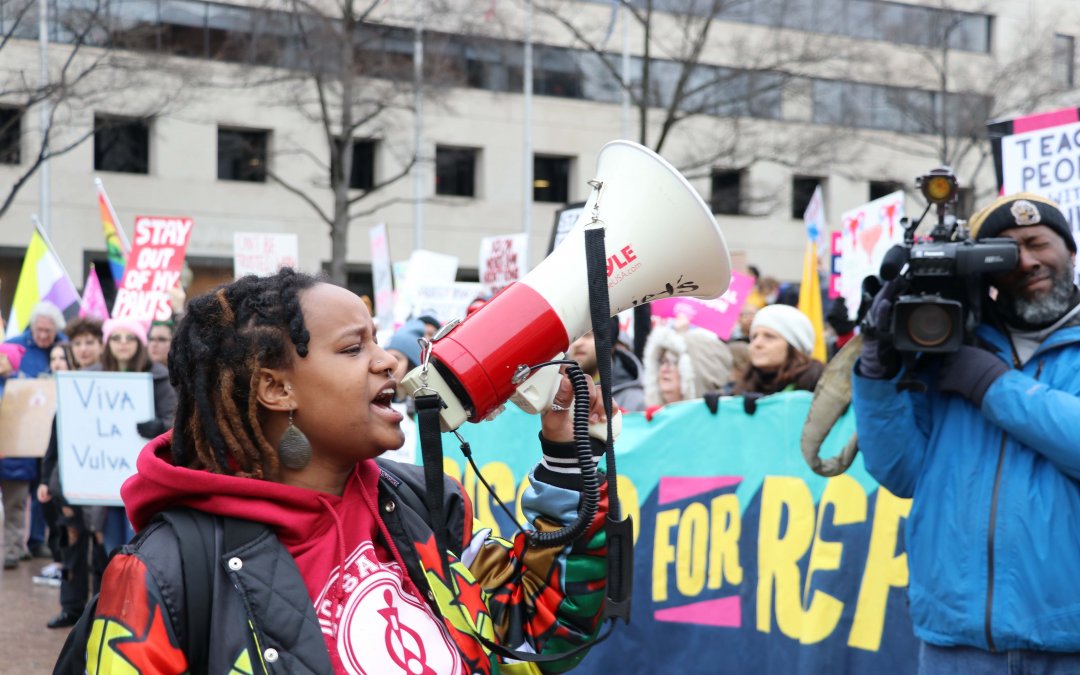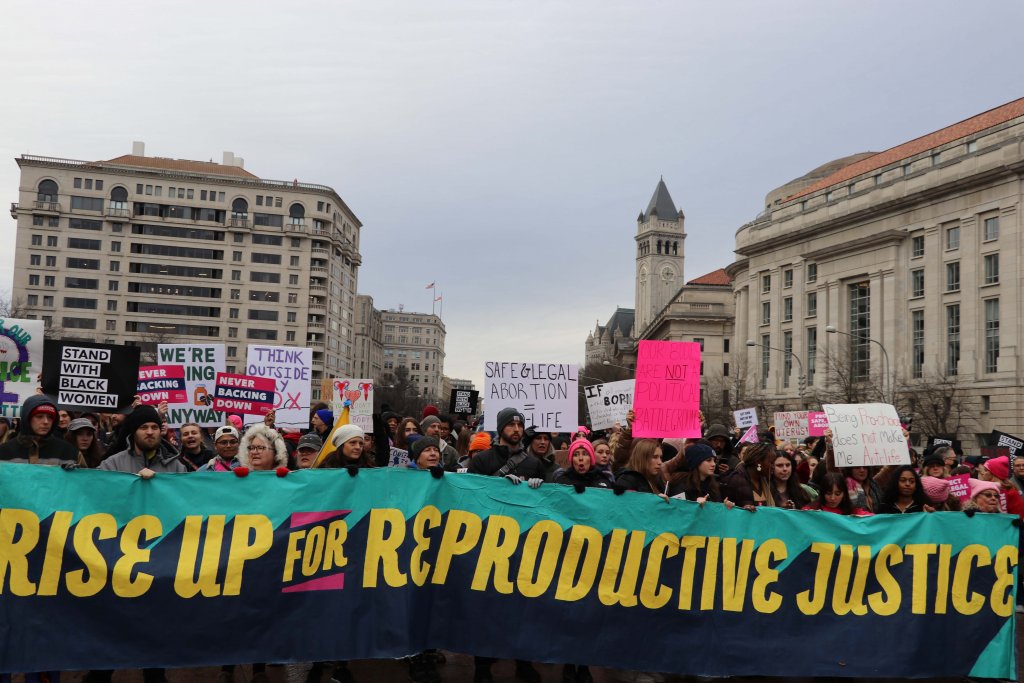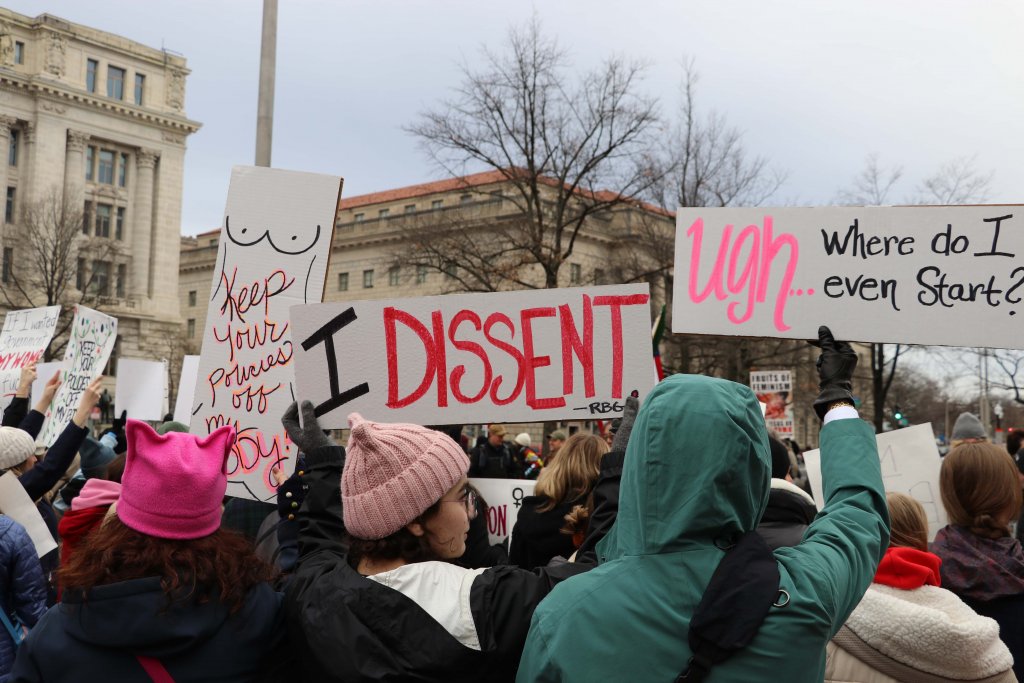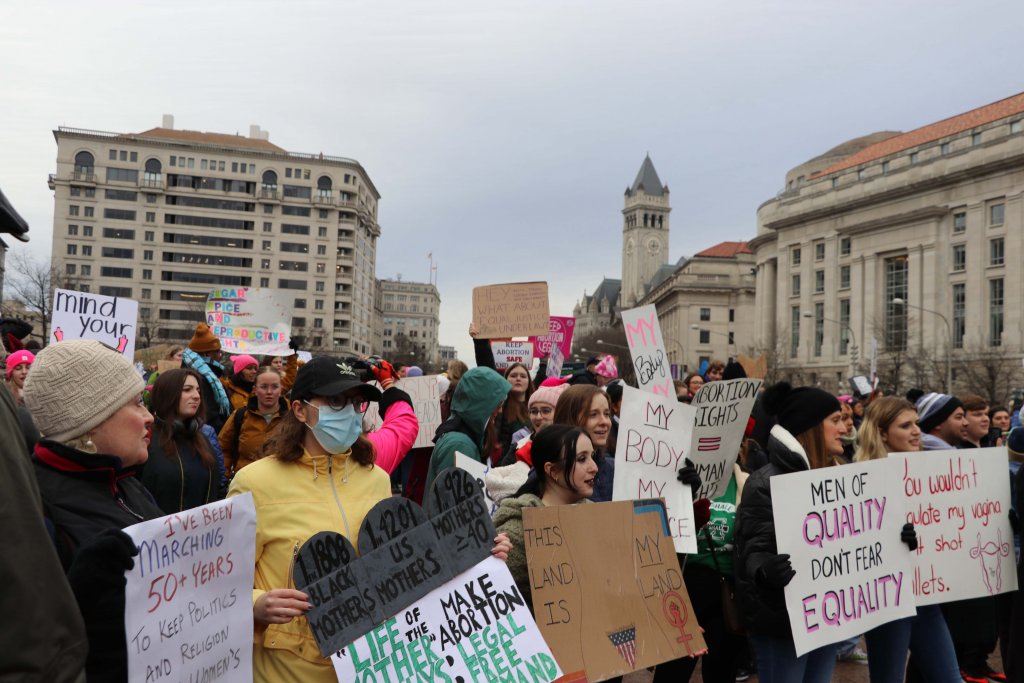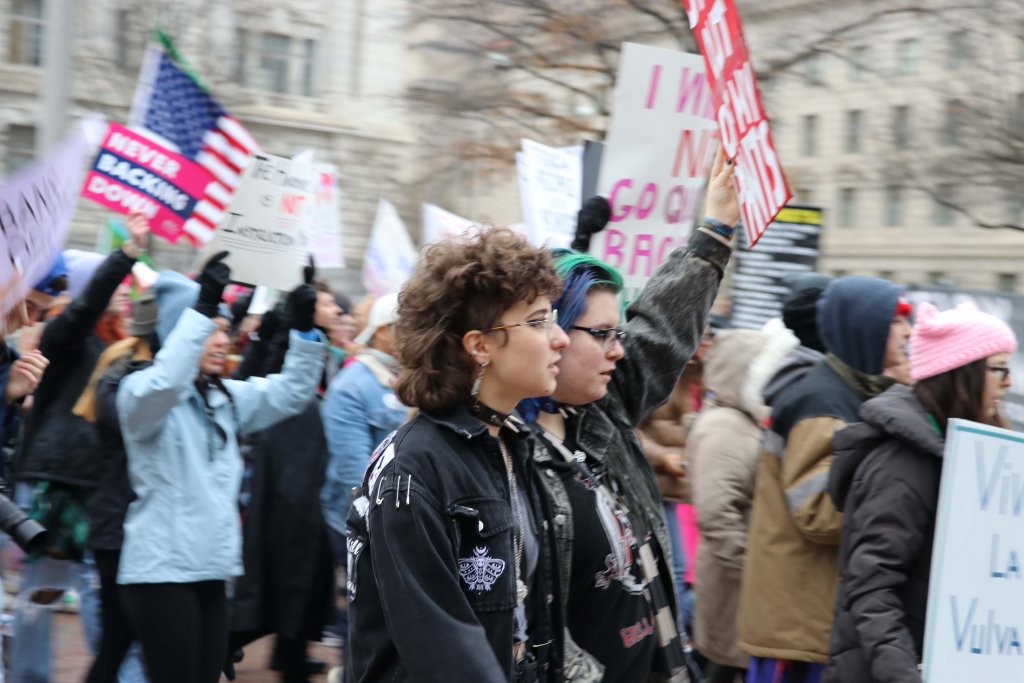WASHINGTON — Hundreds of people gathered in the nation’s capital for the annual Women’s March to advocate for abortion rights, access to contraception and other women’s issues Sunday.
The event, which fell on the 50th anniversary of the Roe v. Wade decision, was part of “Bigger than Roe,” a series of women’s marches around the country. This was the first annual march since the Supreme Court’s ruling in Dobbs v. Jackson Women’s Health Organization, which overturned Roe’s precedent in June 2022.
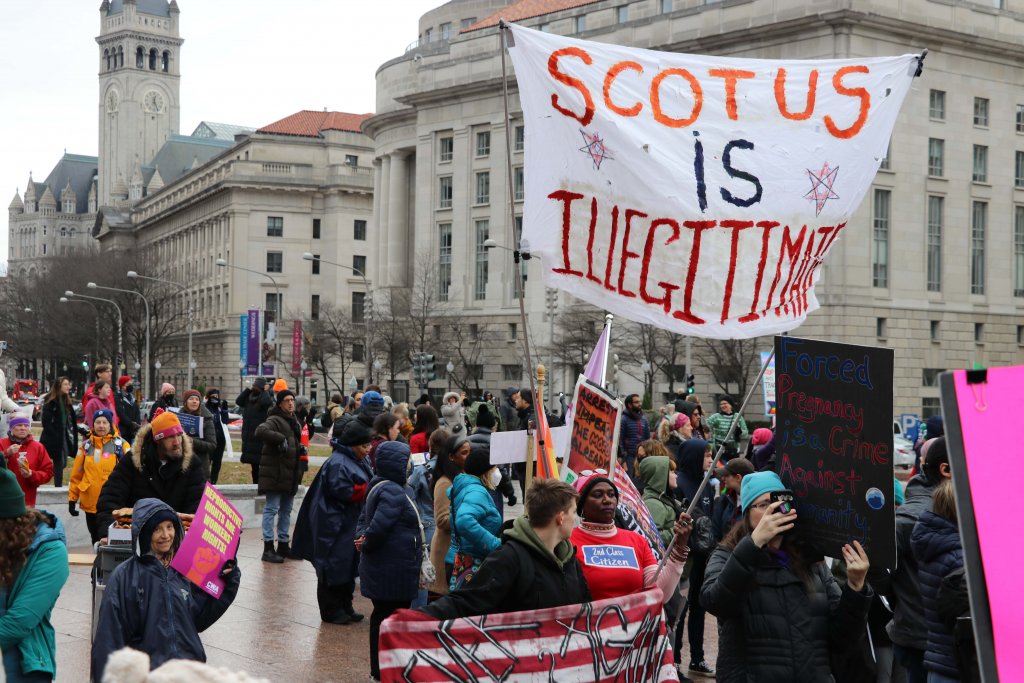
Many signs criticized the Supreme Court after their ruling in Dobbs v. Jackson Women’s Health Organization. (Joanna Hou/MNS)
According to the Women’s March website, 1,989 people pledged to participate in the march, which started in Freedom Plaza and ended at Lafayette Park. The recent court decision motivated some of the protesters.
Finley and Brooklyn, ages 13 and 14 respectively, came to the march with their mothers, who said they came for their daughters. The overturning of Roe v. Wade felt “unfair,” Finley said.
“I don’t want to be run by a man,” Brooklyn said. “I very much like to have my own opinions and own decisions.”
Leah Rullman said she showed up because she wanted to stand up against oppression and advocate for marginalized people. She said the current ban allows the wealthy to still get abortions if they can travel to states that allow them, but limits women who are less financially able.
She said she hopes Roe v. Wade or some similar legislation will ultimately be implemented because people’s safeties are at risk.
“If they wanted to save more lives and stop abortion they would focus on comprehensive sex ed, better access to contraception and making abortions safe and legal instead of banning it and costing more women their lives,” Rullman said.
For Lisa Kaplowitz, attending the march is a yearly tradition. She said she comes to advocate for abortion rights, which she has done for more than 30 years. When she was in medical school, she said she chose to have an abortion because she would have had to drop out otherwise.
She now has two sons and grandchildren.
“Parenthood is already hard … it’s hard without the unwanted pregnancy part,” Kaplowitz said. “We have to fight at the state level, but hopefully eventually we’ll see some federal legislation.”
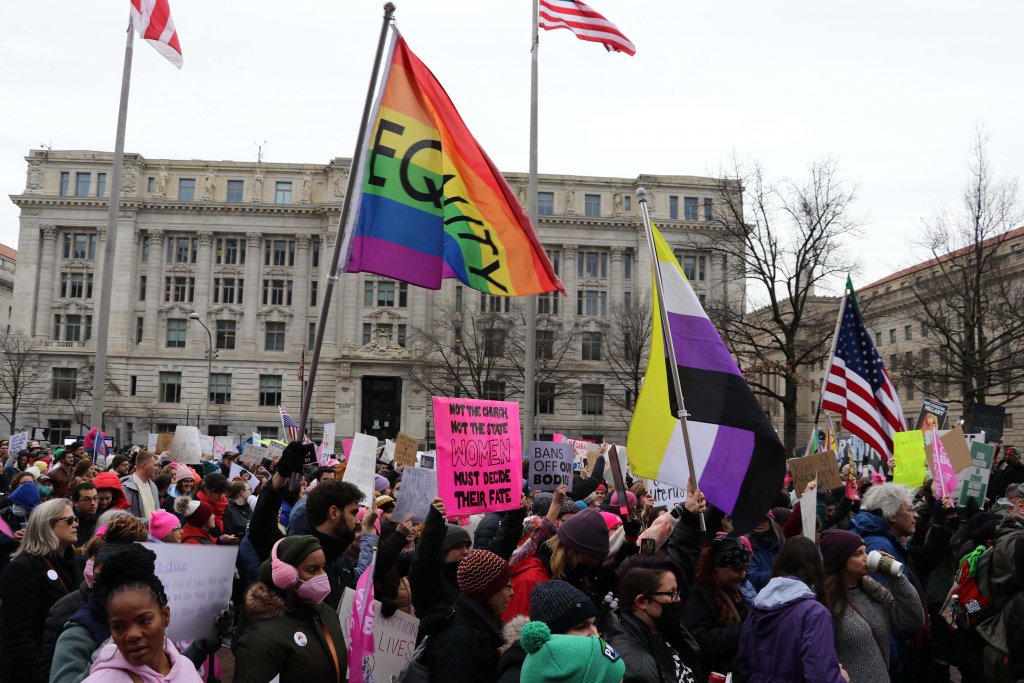
Marchers raised the rainbow flag and nonbinary flag as part of an effort to include more diverse voices in the abortion rights movement. (Joanna Hou/MNS)

